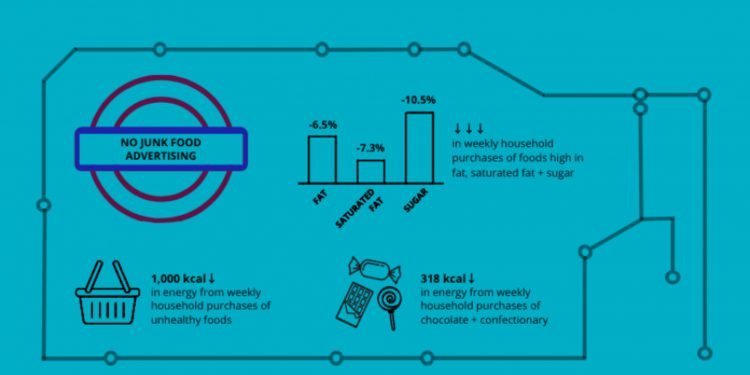London households bought almost 20 per cent less confectionary each week after junk food ads were banned on public transport in the capital, according to research.
Ads for junk food, high in fat, salt and sugar, were banned across Transport for London’s tube and train stations and bus stops from February 2019.
The study, led by London School of Hygiene & Tropical Medicine, ran from June 2018 to December 2019 to track the changes in what Londoners were buying.
The researchers link the ban to a 6.7 per cent drop in average weekly household calories. This translates to a reduction of 385 calories per person per week – equivalent to one and half less chocolate bars for each Londoner each week.
They compared average weekly purchases of junk food in 977 London households, using data on nearly two million grocery purchases.
“It is a scandal that London has such high levels of child obesity”
Dr Amy Yau, the study’s lead author, said, “Many governments and local authorities are considering advertising restrictions as part of obesity prevention strategies.
“Transport for London’s policy is a potential destination for decision-makers.”
The Mayor of London, Sadiq Khan, said, “It is a scandal that London has such high levels of child obesity. Where you live and the amount you earn can have a huge bearing on whether you have access to healthy and nutritious food.
“Advertising plays an enormous role in putting less healthy food and drink in the spotlight. I am pleased to see the positive impact these measures have had.”
Professor Steven Cummins, Chief Investigator of the study, said, “The findings are particularly significant in light of the Health Bill currently going through Parliament, as they provide further evidence for the effectiveness of advertising restrictions.
“They help support the case for the government’s proposed ban on the online advertising of high fat, salt and sugar foods and drinks.”























